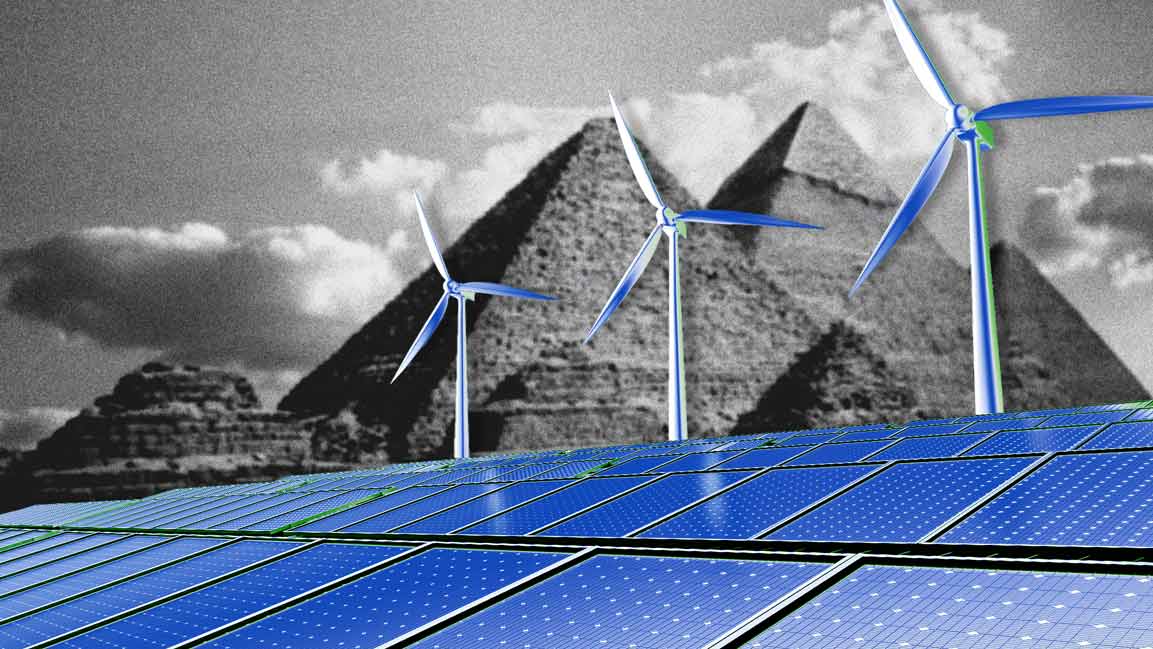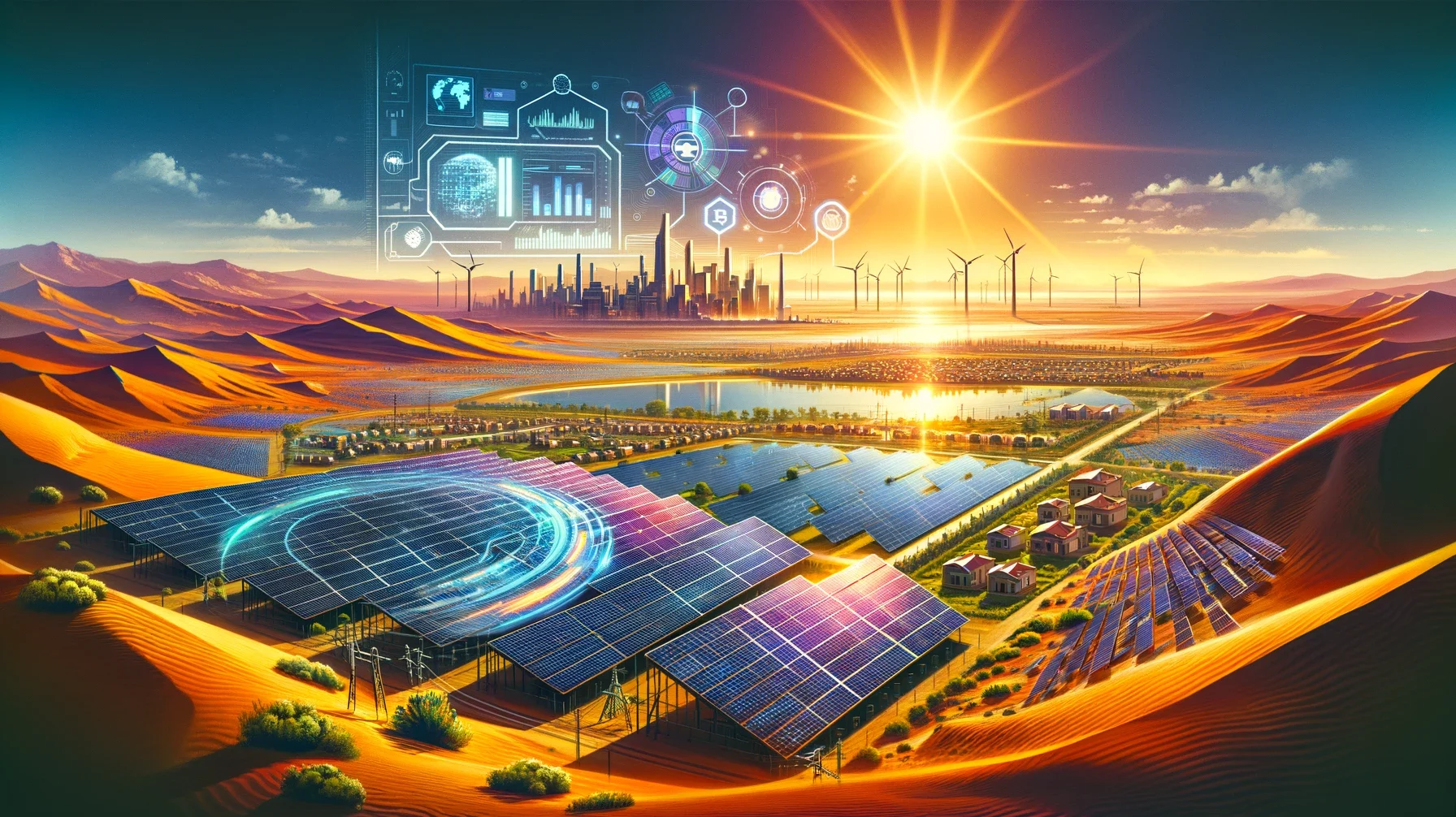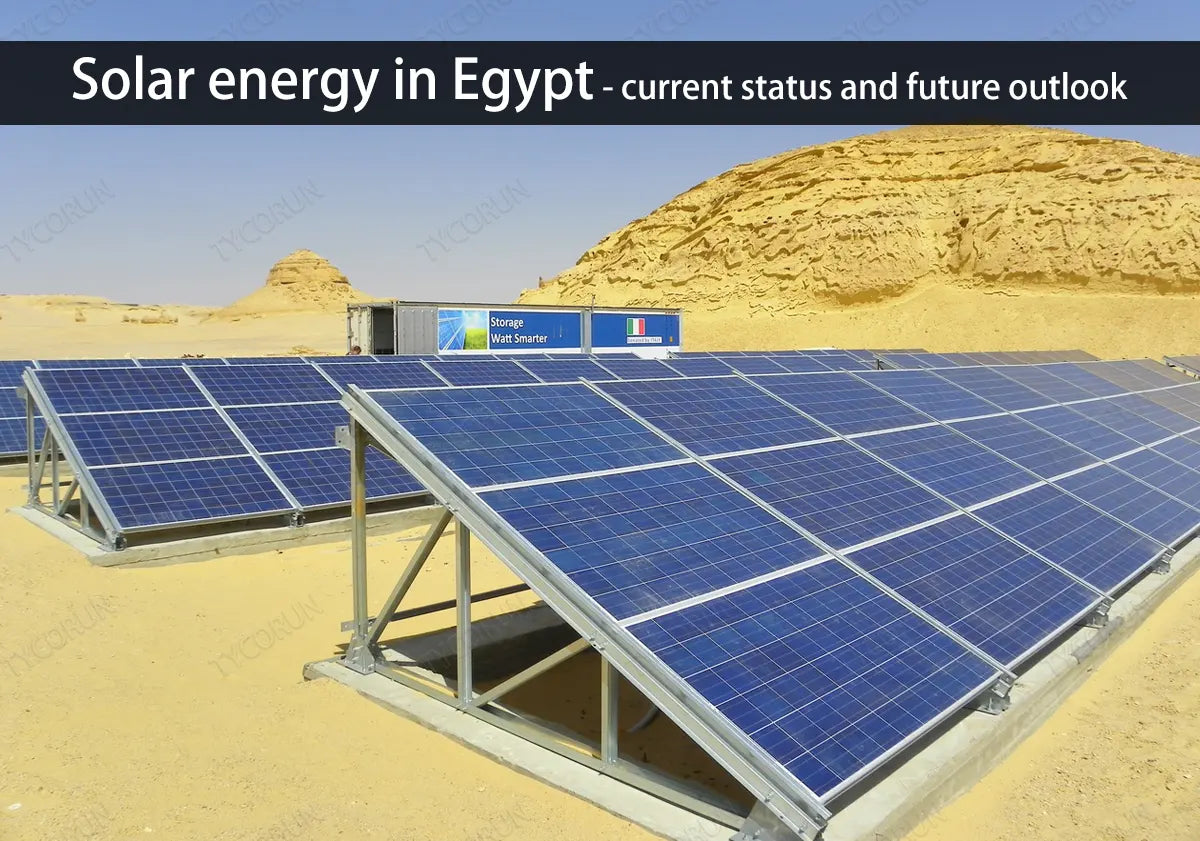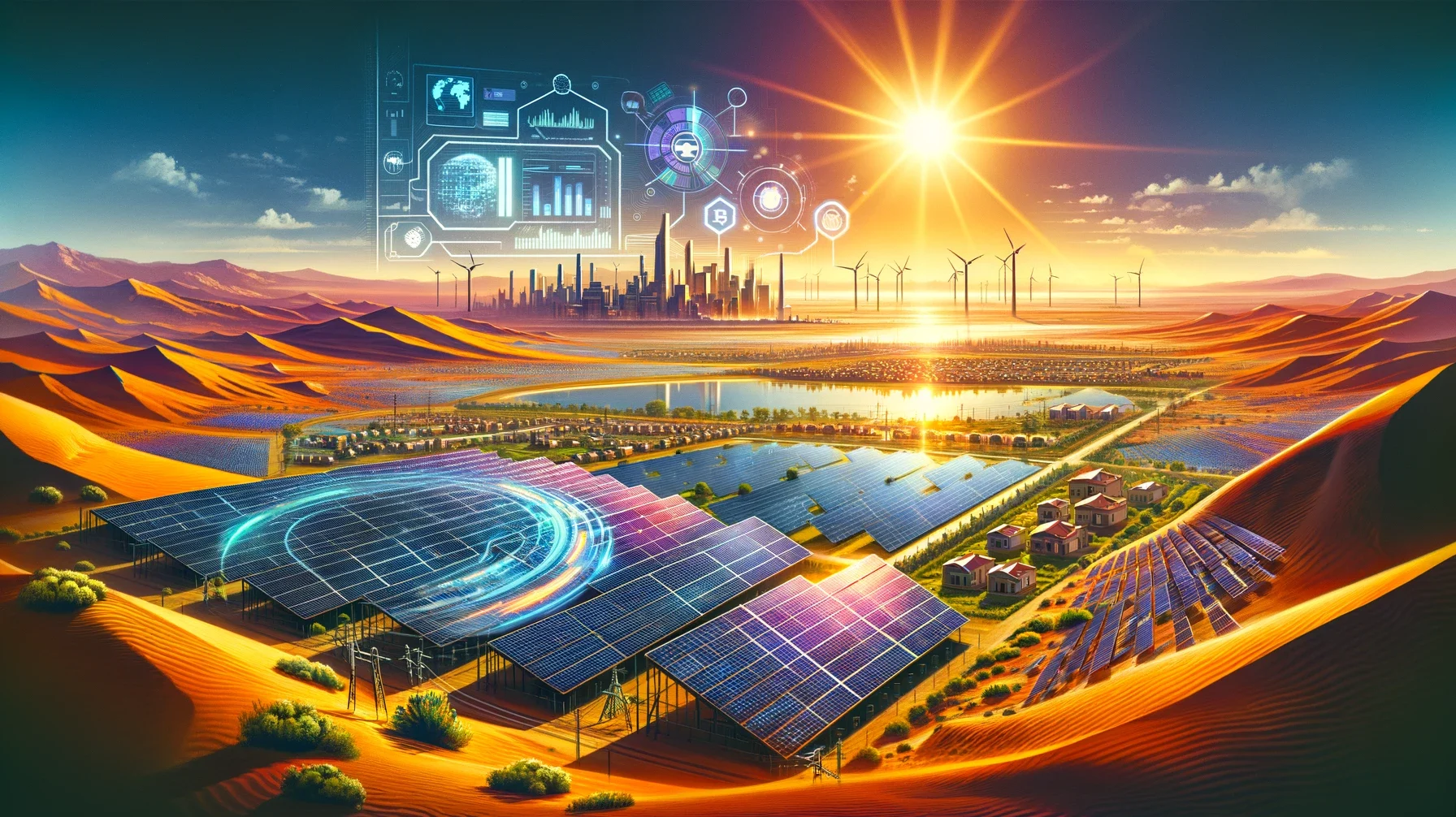Have you ever wondered how countries harness the sun’s never-ending energy to drive future sustainable developments? In today’s conversation, we’re turning our gaze towards Egypt, a nation famed for its rich historical tapestry and outstanding achievements in the field of renewable energy. You see, Egypt isn’t just bringing to life impressive monuments or ancient pyramids; it’s at the forefront of a clean energy revolution. This journey involves a mega-project that promises to position Egypt as a global leader in solar power technology. Let’s chat about how Egypt’s making solar power the star of its clean energy narrative.
Setting the Stage: Understanding Solar Power
Before we jump into Egypt’s ambitious project, it’s crucial to grasp the fundamentals of solar power. At its core, solar power is the conversion of sunlight into electricity, either through photovoltaics (PV) or concentrated solar power (CSP). It’s not just about having endless supplies of power but transforming how we live sustainably. This distinction is crucial because, with a growing global need for clean energy, solar power is key to reducing reliance on fossil fuels.
Why Solar Power?
You might be asking yourself, why solar? Simply put, solar power is a renewable, abundant, and environmentally friendly energy source. It is one of the cleanest ways to generate electricity, as it doesn’t emit pollutants during operation. In a world grappling with climate change, transitioning to solar energy can significantly cut greenhouse gas emissions and dependency on non-renewable resources.
Solar Power’s Global Influence
Across the globe, solar power is making significant waves. Countries like China, the United States, and Germany have been leaders in solar energy adoption, sparking innovation and economic opportunities. The technology reduces electricity bills and has become more affordable over the years, with installation costs dropping as solar tech evolves.
The Solar Revolution in Egypt
Egypt is perfectly positioned in geographical terms, boasting ample sunlight ideal for solar power generation. Its strategic location gives it the upper hand to create a solar powerhouse. The Egyptian government, acknowledging this potential, has laid out ambitious agendas to harness solar energy, not just for local consumption but as an exportable commodity.
A Glimpse at Egypt’s Ambitious Solar Mega-Project
What makes Egypt’s approach interesting is the scale and ambition of its projects, notably the Benban Solar Park in Aswan, one of the largest in the world. This mega-project is part of Egypt’s commitment to generating 42% of its electricity from renewable sources by 2035. Such an initiative demands rigorous planning and cooperation, both domestically and internationally.
Here’s a glimpse of just how monumental this project aims to be:
| Aspect | Details |
|---|---|
| Name | Benban Solar Park |
| Location | Aswan, Egypt |
| Completion Date | Fully operational since 2019 |
| Capacity | 1.8 gigawatts |
| Contribution | Can power over 1 million households |
| Global Ranking | Among the largest solar installations |

Strategic Planning and International Partnerships
You might wonder how such a massive project gets executed. Seems like a daunting task, doesn’t it? Egypt has ingeniously paired strategic planning with international collaborations. By partnering with global tech firms and financial institutions, they’ve designed projects adhering to the highest standards while securing the necessary funding and expertise.
Financial and Technological Footprints
Internationally, solar power investments often require robust financial models and technological insights. Egypt’s alliances with entities like the International Finance Corporation showcases the evolution from visionary plans to executable goals. It isn’t just about having the funds; it’s about the smart application of existing technology with innovative touches suited for Egypt’s environment.
The Role of Policy and Legislation
A crucial part of this endeavor rests on supportive government policy. To incentivize the renewable sector, Egypt has implemented policies facilitating market entry for solar projects. From feed-in tariffs to energy subsidies, Egypt aims to create an attractive playground for investors and developers willing to push the solar narrative.
The Impact of Harnessing Solar Power
Harnessing the sun’s power doesn’t just mean cleaner energy; it’s a driver for socio-economic growth, environmental benefits, and an inspiration for broader technological advancements.
Socio-Economic Benefits
On one hand, massive solar installations create jobs, both temporary during the construction phase and permanent, for operational roles. On the other hand, Egypt’s solar initiatives have catalyzed educational opportunities, prompting partnerships with universities and technical institutes to train a workforce for the renewable sector.
Environmental Advantages
On an environmental front, the solar mega-project reduces Egypt’s carbon footprint, helping to meet international climate targets. Imagine replacing power plants that burn fossil fuels with solar panels soaking up the sun. That’s a significant leap towards a healthier planet!
Energy Independence and Security
Moreover, energy independence is another robust reason Egypt seeks to harness solar power. By reducing reliance on imported fuels, Egypt secures its energy future, shields itself from volatile oil prices, and strengthens its economy against global energy market fluctuations.

Technological Innovations in Solar Projects
Have you ever pondered the kind of technology involved in a solar project of this magnitude? Sophisticated and revolutionary, Egypt’s solar mega-project isn’t just about installing solar panels—it’s about integrating cutting-edge technology.
Advancement in Photovoltaic Technology
Photovoltaic (PV) panels are the backbone of solar projects. Egypt utilizes advanced PV technology, focusing on maximizing efficiency, reducing costs, and ensuring longevity. Innovations include high-efficiency mono-crystalline panels and bifacial panels that capture sunlight from both sides, boosting total energy output.
The Grid Connection and Storage Solutions
Connecting to the grid is a milestone achievement in solar projects. It’s fascinating how solar energy, once captured, turns into usable electricity. Storage technology, however, remains vital for stability. Egypt is exploring battery storage solutions that can store solar energy for use during non-sunlight hours, ensuring 24/7 availability.
Challenges Facing Egypt’s Solar Ambitions
It’s not always sunshine and rainbows in the renewable landscape, is it? Despite the bright prospects, Egypt faces challenges inherent to large-scale solar projects.
Managing Environmental and Social Concerns
Interestingly, constructing vast solar arrays demands land, often raising environmental and social concerns. While solar projects minimize carbon footprint, they must also be built without harming local ecosystems or communities. Balancing development with ecological preservation is critical.
Economic and Financial Hurdles
Economic fluctuations and financial challenges can impact project timelines and budgets. Access to continuous funding and economic stability are necessary for uninterrupted progress, making strategic financial planning indispensable.
Technological and Infrastructural Barriers
Lastly, technological and infrastructural barriers often test large solar endeavors. From modernizing electric grids to integrating solar tech without disrupting existing energy networks, the path is dotted with technological trials that require innovative solutions.

Looking Ahead: The Future of Solar Power in Egypt
Looking forward, Egypt is not resting on its laurels when it comes to solar energy. You can expect continued expansion, innovation, and learning as they move towards their 2035 goal.
The Path Towards Renewable Leadership
Egypt’s path to becoming a leader in clean energy isn’t merely focused on the scale of projects but the innovative approaches employed. Their commitment to continual learning and openness to international collaboration sets a benchmark in leadership.
Scaling Solar to New Heights
With over 90% of Egypt’s land potentially suited for solar farms, scaling is always in the cards. Future projects may push the boundaries of technology, efficiency, and economic viability, marking an evolution from current endeavors to revolutionary breakthroughs.
Implications for Global Solar Markets
The ripple effect of Egypt’s solar ventures is likely to inspire other nations, especially those with similar climates, to capitalize on the sun’s power. Such initiatives make clean energy a viable and attractive option worldwide, fostering a global shift to sustainable energy paradigms.
Conclusion
In the conversation about harnessing solar power, Egypt stands out, not just for its historic achievements but for its aspirations to lead in clean energy technology through massive solar projects. By strategically planning and embracing innovative approaches, Egypt is turning its natural advantages into a beacon of sustainability, socioeconomic development, and global inspiration. Understanding Egypt’s solar journey isn’t just enlightening; it offers a clear perspective on how nations can align their resources to achieve energy independence and environmental stewardship.
With solar energy increasingly in the limelight, the Egyptian experience underscores the importance of vision, dedication, and resilience in navigating the path to a clean energy future. From harnessing new technologies to forging international partnerships, Egypt’s solar projects are paving the way for a brighter, more sustainable world. What about you? How do you envision the future of solar power in changing the global landscape?


